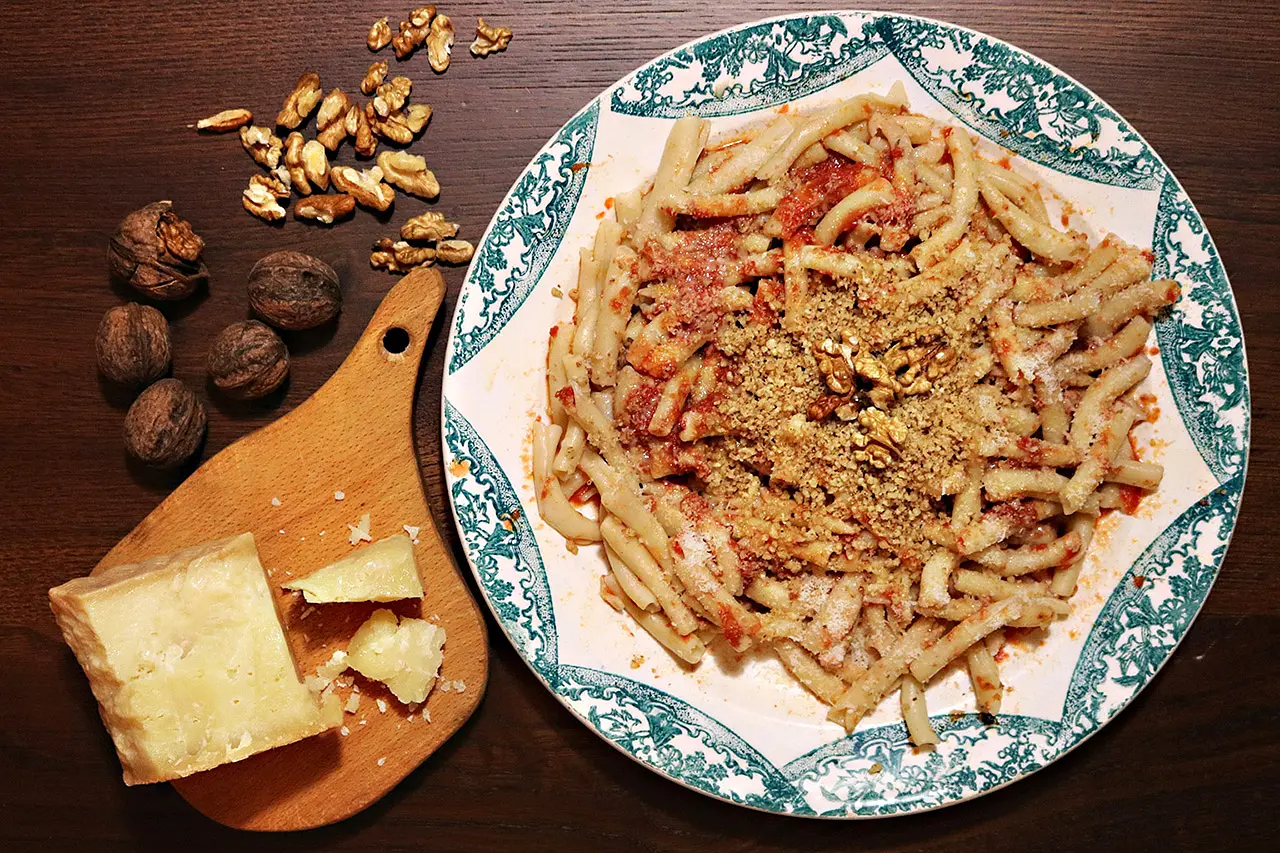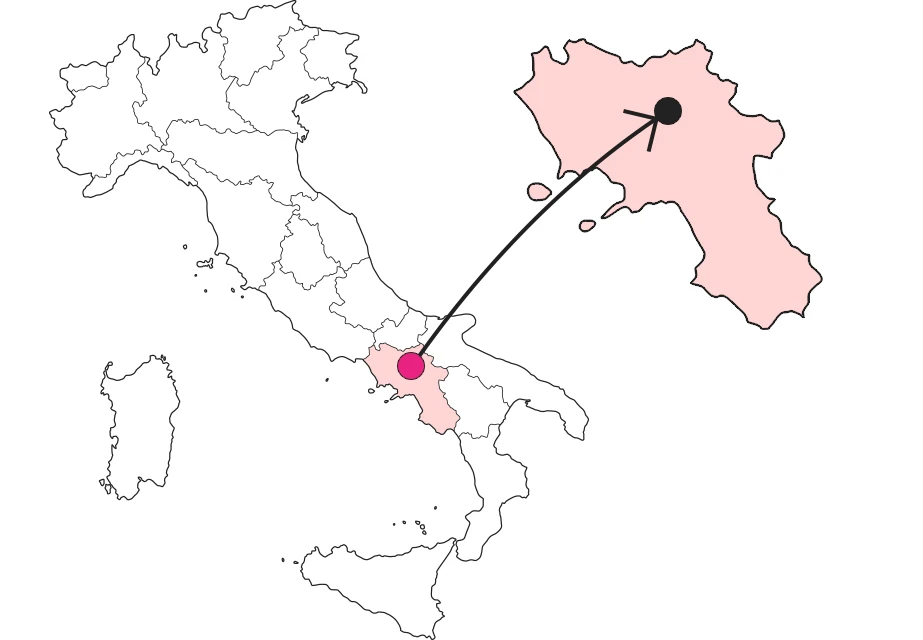SHARRYLAND


Where is

The tradition of Pietrarroja
The etymology of the word is related to the type of tool used to cut the dough, the "carraturo": this is a series of steel wires held taut by a wooden frame with a container underneath to hold the dough. The sheets of dough, pressed with the help of a rolling pin, were thus cut into thin strips. In Pietraroja, however, the presence of a "carraturo" was not always guaranteed, which is why the women worked to prepare the dough in another way: each sheet of dough was cut to make small pieces no more than four centimeters wide. Once crushed by hand and "carriata" (rolled) with the help of an iron stick, the pasta was ready to be boiled.
 Fresh homemade pasta
Fresh homemade pastaTratturo pasta
This type of pasta is typical of the Tratturo villages and the Transhumance routes. In Pietraroja, a Sannio village on the border with Molise and Caserta's Matese region, carrati are cooked with meat sauce, local pecorino cheese and walnuts: this type of seasoning makes this dish unique and inimitable, and to taste the real recipe, you have to pass through Pietraroja or Cusano Mutri and rely on the few inns to enjoy them.
Some clues about the recipe
Want to know how Pietraroja carrati are prepared? During your tour of the village knock on the door of the ladies who live in the historic center, they will be happy to tell you about it... Prepare the ragout using defatted sheep meat. Once rolled it is simmered for over two hours with the addition of local olive oil, salt and tomato, on low heat. Take the handmade pasta (prepared with water, flour and eggs) and, after shaping the carrati, lower it into a pot (water brought to a boil with salt) and, after obtaining al dente cooking, drain it. Immediately afterwards, use a large soup tureen and prepare a base with the sheep meat sauce, add a first layer of carrati with grated pecorino cheese and with chopped walnuts and mix it all, repeating the operation with the rest of the carrati. Plate and serve.
 The true housewife knows how to prepare them even outdoors
The true housewife knows how to prepare them even outdoorsThe long tradition of carrati
Although it is not easy to precisely date the origins of carrati, their tradition in Pietraroja, in the province of Benevento, has at least centuries-old roots. This fresh homemade pasta, made using a ferretto around which to wrap the dough, represents, for Pietrarojana culture, a kind of ritual food connected mainly to the wheat-sowing season. The length of the carts, in fact, which varied according to the skill of the housewives who prepared them, was associated with the length of the future ears that would grow. Today, their tradition survives mostly in family circles.
A gisto to be protected
Carrati boast a well-established tradition in the gastronomic culture of the Telesina Valley and the municipality of Pietraroja in particular. This link with the popular customs of the village has decreed its inclusion in the list of Traditional Agrifood Products (PAT). The Slow Food Foundation, moreover, to safeguard and promote the product, has included carrati in its Ark of Taste.


